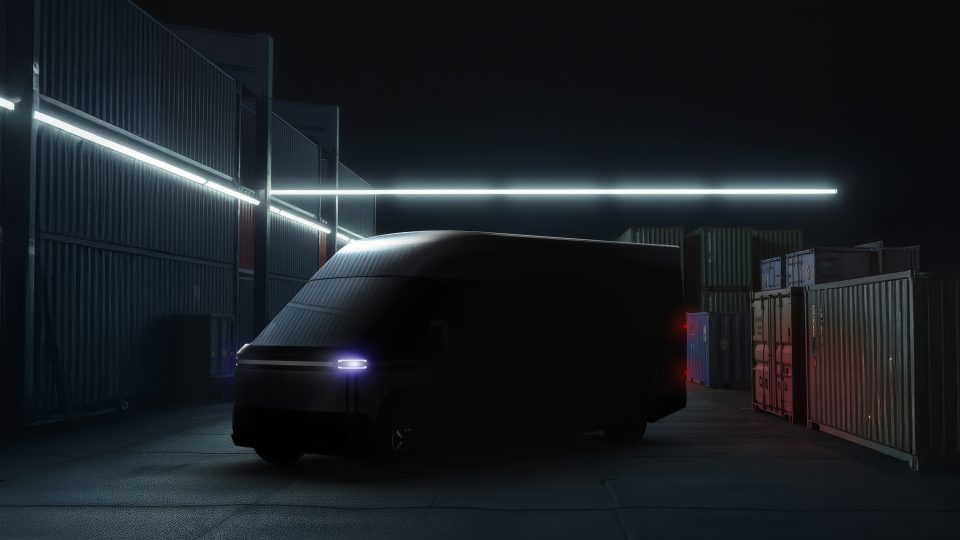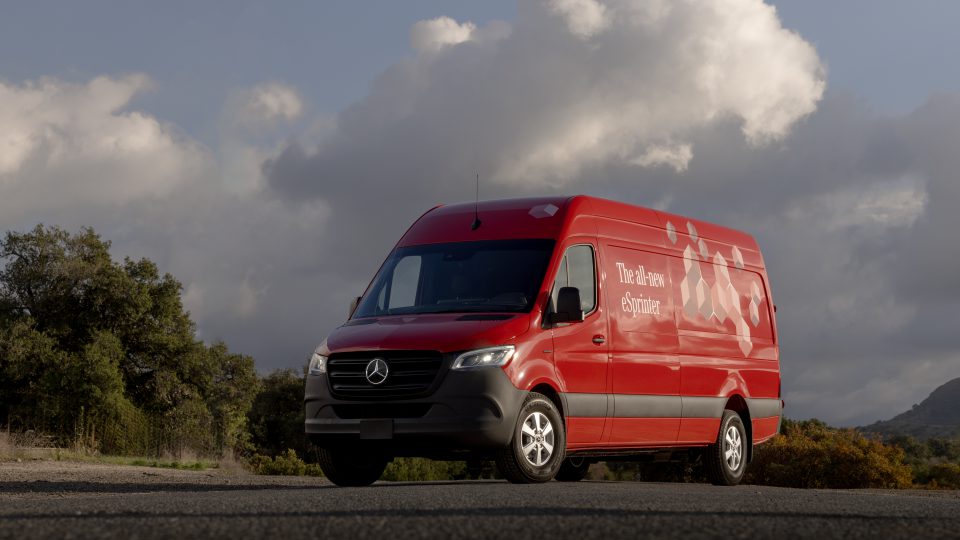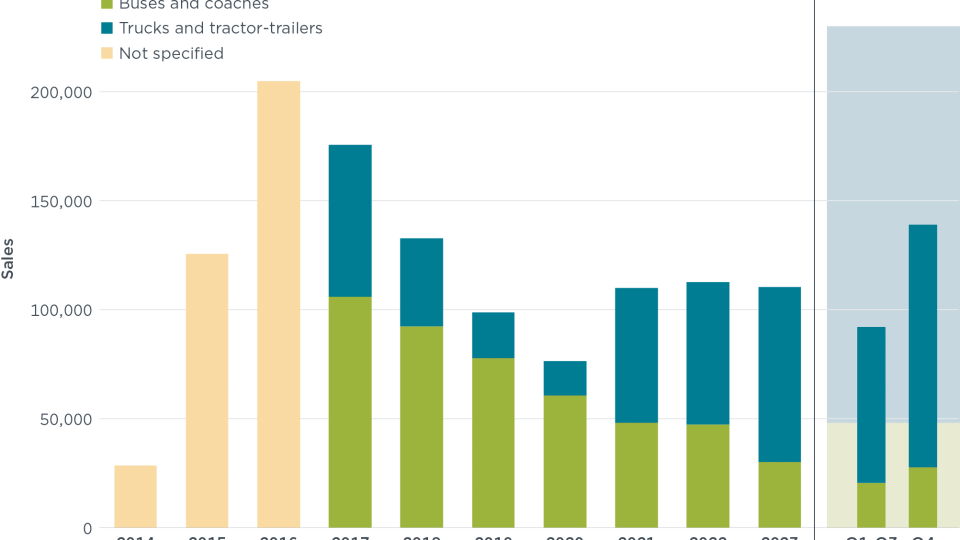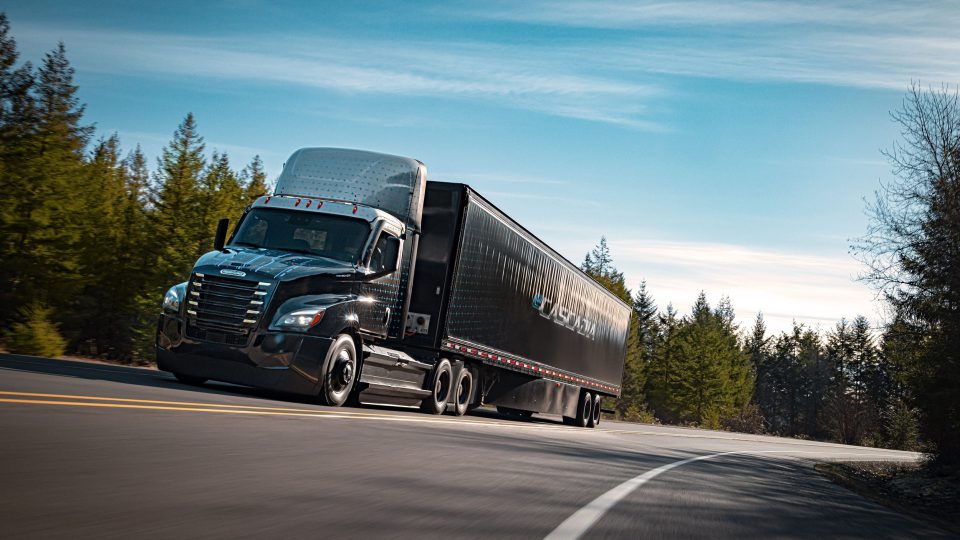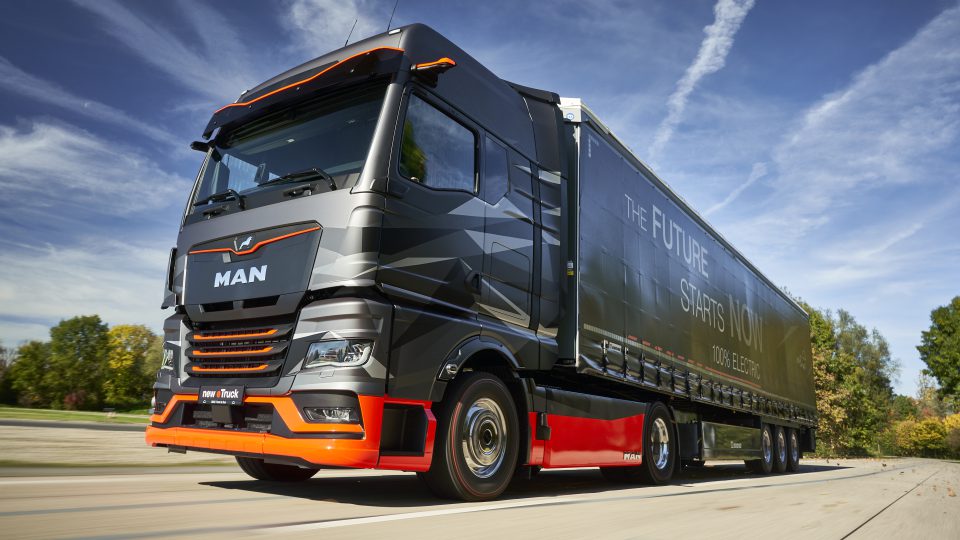Three core benefits of converting trucks to electric power
Powering fleets with electricity may sound like a big change, but there are so many benefits to be had by using these contemporary technologies. In this post, Jordan Smyth explores three of the core benefits to help users decide whether electric trucks could be the right choice.
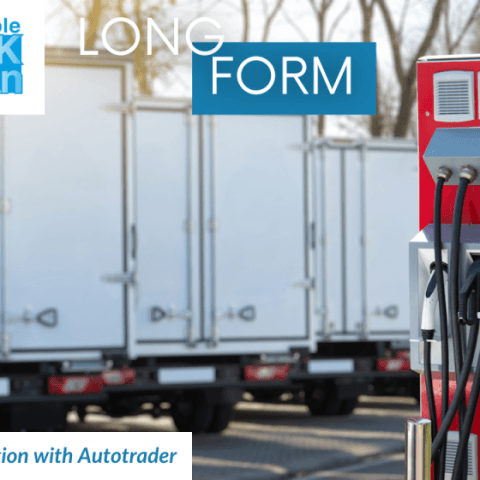
Author: Jordan Smyth
Smyth is an engineering graduate who studied at university in London. Relying on a strong passion for sustainability, Jordan Smyth continues to promote content that tackles a range of issues affecting our environment.
Autotrader is the UK’s biggest digital automotive marketplace, with car buyers trusting their expertise for over 40 years.
With the ever-growing demand for freight transport, we’ve seen a rise in the number of heavy-duty vehicles on the roads. Unfortunately, this is bad news for the environment, with transport emissions rising year on year. In the EU, around a quarter of road transport emissions are produced by heavy-duty vehicles, highlighting just how damaging the industry can be.
But is there a way to meet the rising demand from consumers without having as harmful an impact on the planet? Whilst lots of different solutions are being explored by governments and companies around the world, one of the most feasible options currently is electromobility.
Powering fleets with electricity may sound like a big change, but there are so many benefits to be had by using these contemporary technologies. In this post, we explore three of the core benefits to help users decide whether electric trucks could be the right choice.
With environmental targets having been set, investment in EV infrastructure is continuing to grow, and a big part of this is ensuring there are enough public chargers all across the country
Jordan Smyth
Converting trucks to electric: environmental benefits
Trucks are a vital part of our economy, transporting goods all over the country. However, they also have a significant impact on the environment, and this is certainly one of the core areas in which we could benefit from converting to electric power. In addition to the emissions that come from the engine, traditional trucks also generate a lot of noise pollution.
Meanwhile, electric trucks run on batteries, which helps to reduce emissions and improve air quality. In addition, electric trucks are much quieter than traditional trucks, helping to reduce noise pollution. While the upfront cost of electric trucks is higher than traditional trucks, the long-term benefits make them a worthwhile investment. Not only will they help to improve air quality and reduce noise pollution, but they will also save money on fuel costs.
Benefit number two: being future-proof
It’s also important to consider that when the environment benefits, companies will also be benefitting. Implementing more eco-friendly practices and policies throughout operations will ensure users comply with government regulations around air pollution and emissions.
With the Paris Agreement in place, governments around the world will likely start to enforce stricter measures to ensure they can meet local and international climate change targets. Diversifying your fleet and opting for electromobility will help to future-proof your company against these potential legislative challenges.
Potrebbe interessarti
Fit for 55, beyond the rumors. The European Commission proposes 55% net GHG reduction by 2030
Investment in infrastructure may even be beneficial
With environmental targets having been set, investment in EV infrastructure is continuing to grow, and a big part of this is ensuring there are enough public chargers all across the country.
For example, Volvo Group, Daimler Truck and Traton Group have agreed on a joint venture to install 1,700 public charging points at logistics centres and unloading zones. Not only will this help to ease any concerns around range anxiety, but the public points will all be powered by green electricity, meaning your fleet will be going further to support the environment.
Potrebbe interessarti
ABB to partner with PACCAR on advanced charging solutions for trucks
When dealing with trucks, we have to consider the added power that’s required to charge them, compared to normal passenger cars. More investment is needed in more powerful chargers, to ensure fleets aren’t delayed too heavily by having to top up their tanks. PACCAR chargers at fixed stations range from 20 kW to 360 kW – but how does this translate into charging time? A 180 kW charging point has the capacity to charge most types of truck in around three hours. Meanwhile, it would take under two hours for a 350 kW PACCAR unit to fully charge an all-electric DAF truck.
As investment continues, it’s likely that electromobility will become even more accessible to companies all around the world.






